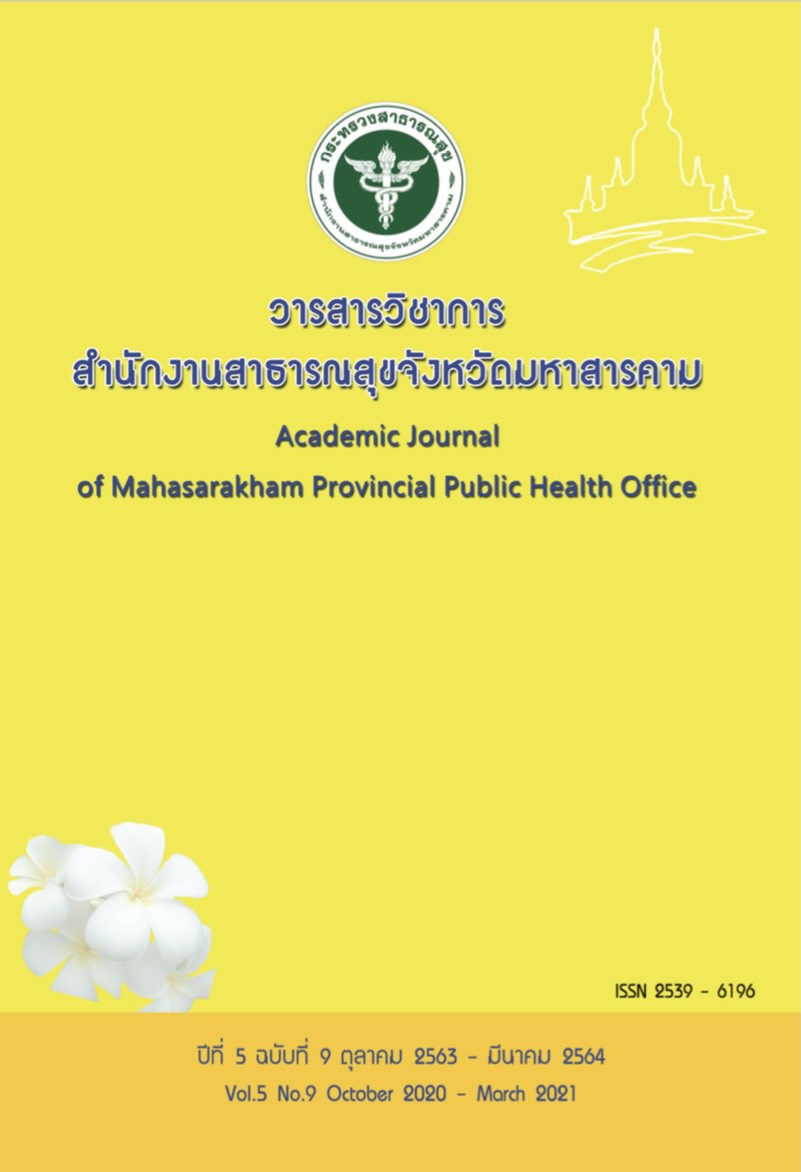Nursing care for Meningococcal Septicemia with Disseminated Intravascular Coagulation: A Case study
Abstract
Abstract
Background : Meningococcal Septicemia is a hazardous infection due to the pathology of the disease spreading relatively quickly. The most common problem in the patients is disseminated intravascular coagulation (DIC). Therefore, nurses need to have nursing skills by using the nursing process as a guide to care for patients.
Purpose : To study nursing care for a patient with Meningococcal Septicemia and to have acute DIC.
Methods : A case study was a Thai male patient with an 18-year-old who received medical treatment in the men's internal medicine ward at Phranangklao Hospital with fever and weakness in his limbs, abdominal pain, petechiae, and maculopapular rash. Collect data by using interviews, observing and collecting information from patient medical records, and analyzing patients according to the nursing process, including assessment, nursing diagnosis, nursing planning, nursing implementation, and evaluation.
Results : This case study found that nursing problems that involved DIC, which including nursing patients with sepsis who has hypothyroidism due to the sepsis, bleeding of organs due to low platelets, risk of choking due to abnormal movements and decreased levels of sense, uncomfortable with weakness in limbs and pain, as well as illness anxiety. The patient received medical treatment until he improved accordingly, found no other complications, and was discharged from the hospital.
Conclusion : Nursing care for a Meningococcal Septicemia patient with DIC requires the nurse to use the nursing process to diagnose and care quickly. As a result, the patient has safety and reduces various complications and recovery well after medical treatment, and a patient can return to everyday life as much as possible.
Keywords: Meningococcal Septicemia, Disseminated Intravascular Coagulation, case studies, nursing


